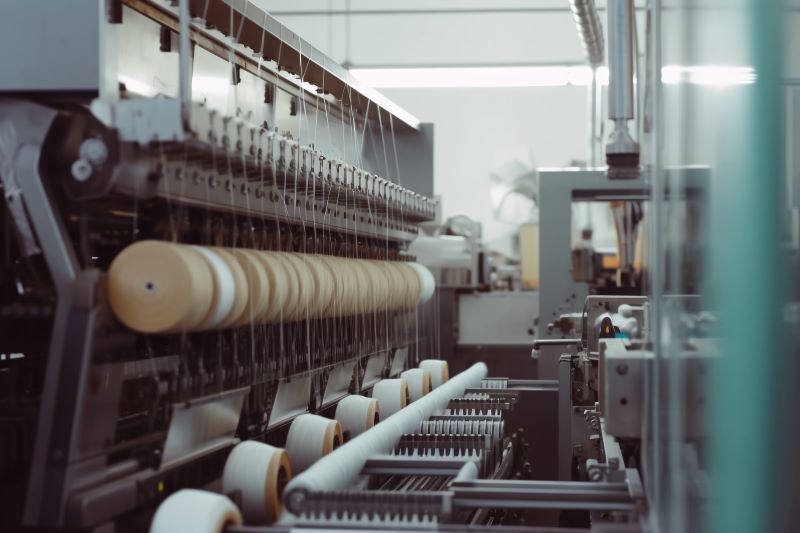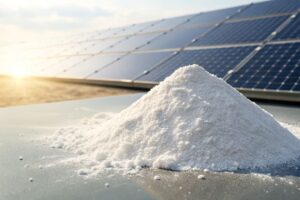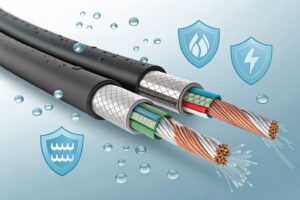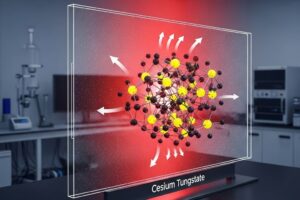Polyester monofilaments have a wide range of applications in many fields such as textile, industrial and consumer products. However, during production and use, polyester monofilaments may face problems such as oxidation, photodegradation, thermal decomposition and hydrolysis. To solve these problems, stabilizers play a crucial role in the production process. This article will introduce commonly used stabilizers in polyester monofilament production, with special emphasis on the importance of anti-hydrolysis agents, and discuss the outstanding performance of HyMax anti-hydrolysis agents in improving the durability of polyester monofilaments.
Common stabilizers used in polyester monofilament production
1. Antioxidants:
In the production of polyester monofilaments, antioxidants help to prevent the polymer from being oxidized at high temperatures. Common antioxidants are categorized into primary antioxidants (e.g., hindered phenols) and secondary antioxidants (e.g., phosphites). Primary antioxidants protect polyesters from oxidation by interrupting free radical chain reactions. Secondary antioxidants provide additional protection by breaking down peroxides.
2. UV Absorbers:
Polyester monofilaments exposed to sunlight can be damaged by UV rays, leading to material degradation. Commonly used UV Absorbers, such as benzotriazoles and diphenyl dimethyl amines, prevent material degradation by absorbing UV energy and converting it to harmless heat.
3. Light Stabilizers:
Light stabilizers (e.g., Hindered Amine Light Stabilizers, HALS) neutralize light-induced free radicals and provide long-term light stability, especially for polyester materials exposed to sunlight.
4. Thermal Stabilizers:
Thermal stabilizers prevent polyester materials from decomposing during high temperature processing. Commonly used compounds include halogen-containing compounds and certain metal salts, which are effective in enhancing the thermal stability of polyester.
Anti-hydrolysis agent
In high temperature and high humidity environment, polyester materials are prone to hydrolysis reaction (what is hydrolysis?), resulting in performance degradation and shortened life, anti-hydrolysis agent can effectively solve this problem.
Importance of anti-hydrolysis agent
Among the many stabilizers, the role of anti-hydrolysis agents is particularly important. Polyester materials are susceptible to hydrolysis in hot and humid environments, leading to performance degradation and shortened life. By inhibiting or delaying the hydrolysis process, anti-hydrolysis agents can significantly improve the durability and reliability of polyester monofilaments.
HyMax anti-hydrolyzers are leaders in the polyester industry due to their unique formulations and outstanding performance. Below are the specific roles and benefits of anti-hydrolysis agents in polyester monofilaments:
1. Improve durability: HyMax hydrolysis inhibitors prevent water molecules from intruding into the polyester monofilament through chemical bonding or physical shielding, effectively extending the service life of the polyester monofilament.
2. Maintain mechanical properties: anti-hydrolysis agent can maintain the strength and toughness of polyester monofilaments, even in a long-term hot and humid environment, can still maintain stable mechanical properties.
3. Protect the appearance quality: effectively slow down the hydrolysis degradation process, prevent the polyester monofilament surface chalking, cracking and other problems, to maintain its good appearance quality.
4. Cost saving: prolong the service life and stability of polyester monofilament, can reduce the frequency of material replacement, reduce the cost of use, so as to achieve higher economic benefits.
Reaction principle of anti-hydrolysis agent in polyester monofilament
The ability of HyMax hydrolysis inhibitors to enhance the hydrolysis resistance of polyester monofilaments is due to their unique chemical structure and reaction mechanism. On the one hand, the hydrolysis inhibitor molecules have the ability to covalently bond with the polyester molecular chains, forming a more stable chemical bond and thus increasing the resistance of the polyester material. On the other hand, the anti-hydrolysis agent can also form a protective barrier on the polyester surface, blocking the penetration of water molecules and reducing the chance of hydrolysis reactions.
How to add hydrolysis stabilizer into polyester monofilament
HyMax hydrolysis inhibitors can be added to polyester monofilaments in two ways:
1. Direct powder addition:
– This method involves the addition of a powdered anti-hydrolytic agent directly into the polyester resin mix. This method is simple, efficient and relatively inexpensive. However, even distribution of the powder in the plastic particles is critical, and mixing skills are required to ensure that the hydrolysis inhibitor is well blended for optimal performance.
2. Masterbatch addition:
– Another simpler method is to make a highly concentrated masterbatch of the hydrolysis inhibitor. A masterbatch is a pre-dispersed compound containing an anti-hydrolytic agent and a carrier resin. By blending the masterbatch with the polyester resin, a uniform distribution of the hydrolysis inhibitor in the polyester monofilament is ensured. This method is more efficient, suitable for large-scale industrial production, and enhances the stability and controllability of the production process.
Conclusion
In the production of polyester monofilaments, choosing the right stabilizer is crucial. As a professional brand of anti-hydrolysis, HyMax Anti-Hydrolysis Agent has more than 10 years of production and R&D experience in this application field, and can provide all-round guidance on the addition of raw materials and product testing to ensure that polyester monofilaments still maintain excellent performance in a variety of complex environments.
Through the proper application of HyMax hydrolysis inhibitors, you will not only improve the quality and competitiveness of your products, but also meet your customers’ needs for high-performance polyester monofilaments. If you are interested in our products or have any questions, please feel free to contact us. Let’s explore together, better material solutions!







